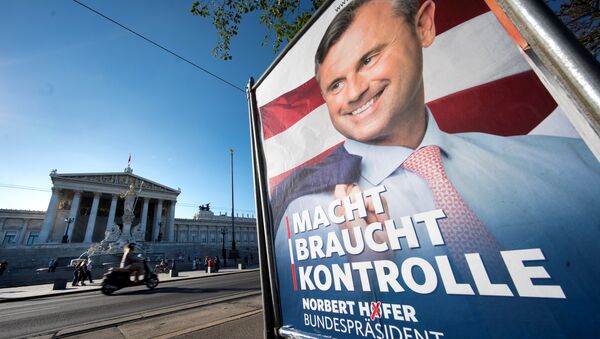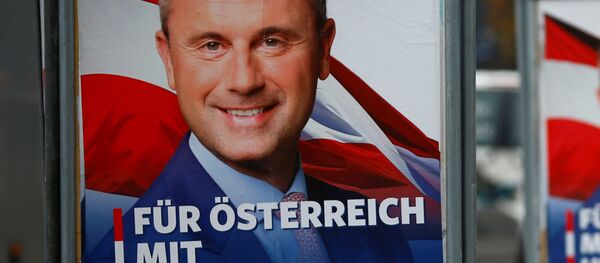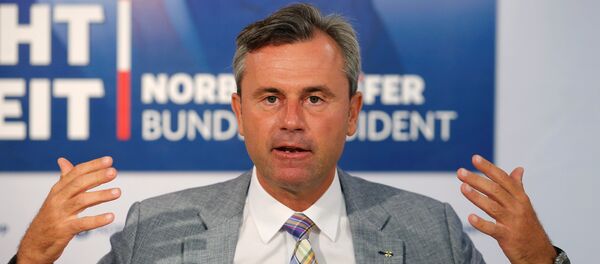"In my opinion Norbert Hofer, as he is one of the Presidents of Parliament, has shown he is suitable for being President of Austria. All parties in Parliament judge he did a good work here… I think he is the favorite for this election," Lopatka said praising Hofer's performance as the Third President of the National Council, the lower chamber of the Austrian Parliament with broader powers.
"At last the candidate, who will mobilize his voters best, will win the election," Lopatka added.
Hofer is well-known for his anti-migrants and anti-EU stance. He promised he would call a referendum on EU membership if Turkey joined the 28-member bloc or if Brussels tried to centralize it powers. Van der Bellen, in contrast, has been campaigning on a pro-EU platform, calling for the solidarity between member states, as "otherwise we won't be able to assert ourselves in the face of Russia or the United States".
Hofer and his Freedom Party call for abolishing of sanctions against Russia, deeper alliances with eastern European countries and close ties to Donald Trump’s administration in the United States. Meantime, Van der Bellen advocates for Austria's strong relationship with its largest trade partner Germany.
Support extended by the ruling Social Democratic Party of Austria (SPO) to presidential candidate Alexander Van der Bellen may undermine his chances to become the country's next president as SPO is unpopular with voters in Vienna, Lopatka added.
"In Vienna the SPO, who supports Van der Bellen, has a dispute about its future and doesn't solve the serious social problems. The anger of the people in Vienna is going to affect Alexander Van der Bellen. I think, Hofer will win," Lopatka, a former State Secretary for European and International Affairs, suggested.
One of the main concerns in Austria and Vienna in particular is high surge of crimes committed by migrants following the arrival of some 120,000 refugees from the Middle East, Africa and Asia since 2015. According to the latest figures from the Interior Ministry, during the first six months of the year, there was a 38.8-percent rise in criminal complaints against migrants in the Austrian capital. FPO with its anti-migrants stance has tapped into local residents' worries.
Lopatka added that in the situation when the voters decide not only depending on candidate's ideas, but on their personalities and charisma, Van der Bellen seems disadvantageous compared against his rival.
"I do not think presidency is a question of age, but Alexander Van der Bellen sometimes seems to be a bit tired," Lopatka added.
In May, Hofer narrowly failed to be elected president in the second round after being beaten by Van der Bellen by just 31,000 votes. The FPO managed to have the election annulled in July by the Constitutional Court because of procedural irregularities. Now the two candidates run neck and neck, though polls give Hofer a slight advantage.




